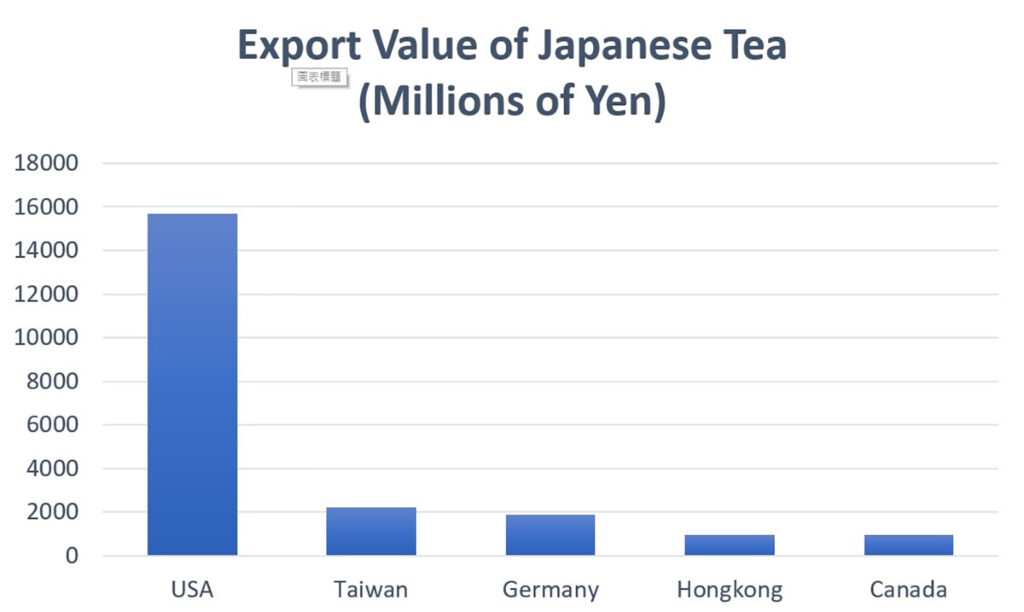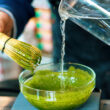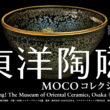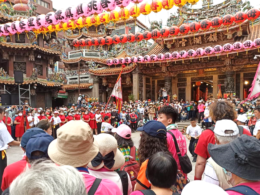Taiwan’s vibrant beverage culture is enthusiastically embracing Japanese matcha. The growing popularity of matcha beverages and desserts is highlighted by the increase in matcha-flavored meals at beverage stores, supermarkets, and cafes in Taiwan.
Taipei, Taiwan (Business Northeast) – This surge in tea exports signifies a dynamic shift in global consumption patterns, with powdered tea varieties, particularly matcha, driving the growth trajectory. Matcha, in particular, has witnessed a remarkable surge in popularity, with its versatility and unique flavor profile making it a favorite choice among consumers worldwide. According to trade statistics from the Ministry of Finance of Japan, the United States emerges as the largest importer of Japanese tea, with a staggering 49.6% increase over the previous year, amounting to 15.7 billion yen. Taiwan follows closely behind, experiencing a notable 16.8% growth to reach 2.2 billion yen, while Germany secures the third position with a 7.0% share, totaling 1.9 billion yen. Within these markets, the sales volume of matcha has seen the most significant uptick, indicating a growing preference for matcha-infused products among consumers.

Matcha has excellent nutritional value and unique flavor and carries Japanese tea ceremony culture, making it popular among many Japanese culture fans. Rising global health awareness and matcha’s health-promoting and nutrient-rich properties will continue to drive market growth. In addition, matcha has a fresh taste and can be added directly to desserts or drinks to create a bright color and rich aroma, giving consumers a sense of surprise and pleasure. Matcha is a natural ingredient or drink and an integral part of Japanese tea ceremony culture. This cultural significance drives consumption and attracts tourists seeking an authentic Japanese tea ceremony experience.
The Beitou Museum in Taiwan is committed to promoting the Japanese tea ceremony. It holds several festive tea parties yearly, including the Spring Tea Party for Girls’ Day, the Iris Tea Party for Men’s Day, the Summer Chinese Valentine’s Day Tea Party, and the Autumn Double Ninth Festival Tea Party. This year’s Men’s Day Iris Tea Party will be held on June 2. The event includes an introduction to Japanese festival customs, explaining and practicing tea ceremony etiquette, enjoying the month’s limited-edition tea kaiseki, freshly brewed matcha, and seasonal wagashi, and taking photos with the festival decorations. Let the participants experience the formal tea party, feel the tea room decoration and atmosphere, and appreciate the aesthetic essence of the tea ceremony.
In addition to the tea ceremony’s overall ritual, the tea room’s environment and layout also show the artistic conception’s subtlety. The tea room is decorated with hanging scrolls corresponding to the seasons, which are the works guests will first appreciate when entering the tea room. “Nanfang Lu” states: The hanging scroll is the most critical tea prop. It can be seen that the hanging scroll is one of the vital tea props that create a tea room atmosphere, and it is also a carefully collected art piece by many tea ceremony enthusiasts.
Le Yu, the publicist of Kasashima Co., Ltd. in Osaka, said: Hanging scrolls are an indispensable prop in tea ceremony culture. Common hanging scrolls are primarily paintings and calligraphy of flowers, birds, and landscape. The most popular are Zen monks’ calligraphy, ancient handwriting, or letters written by tea masters. Hanging scrolls not only focus on calligraphy and painting skills but also emphasize the artistic conception and Zen of the content. Many people who love tea ceremonies will collect multiple hanging scrolls and choose suitable ones according to the season to create a mood and atmosphere in the tea room.
By passing on tea ceremony knowledge and etiquette, tea ceremony tea parties make drinking matcha a taste enjoyment and a feast for the soul. Participate in a formal tea ceremony, feel the organizer carefully create a peaceful gathering for the guests, and appreciate the host’s dedication to presenting a bowl of good tea to the tea party guests. People who love Japanese culture must attend this tea party event. Visit the Beitou Museum, taste matcha, and feel the beauty that the tea ceremony brings to life.










